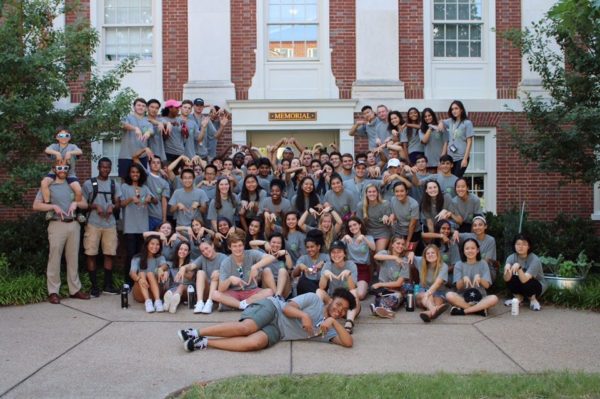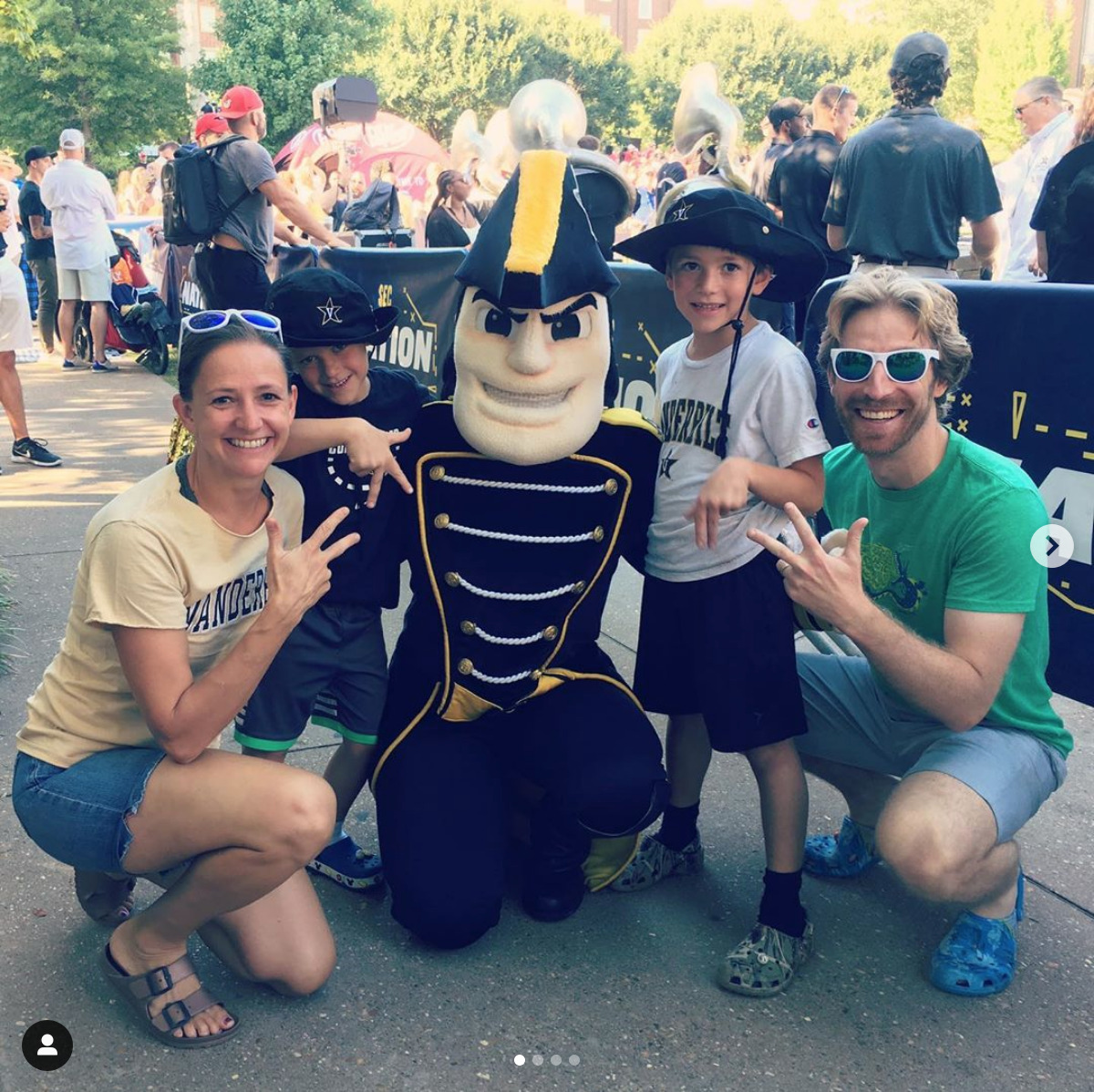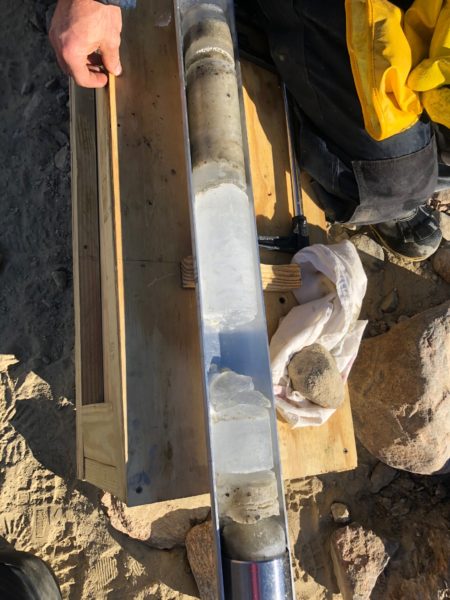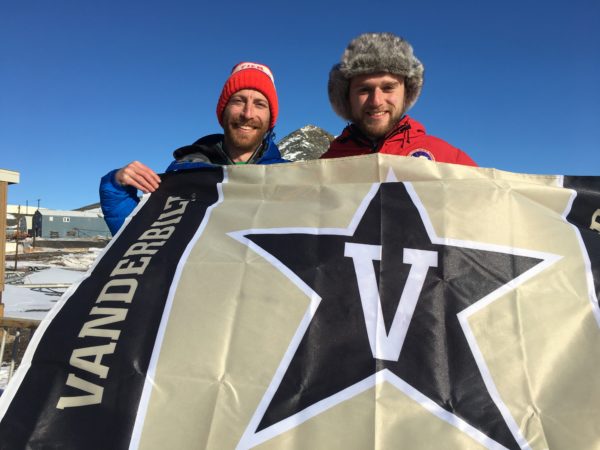By Amy Wolf
Whether leading a research expedition in the Antarctic or an event at his residence hall on The Martha Rivers Ingram Commons, there’s a certain outlook Principal Senior Lecturer of Earth and Environmental Sciences Dan Morgan adopts: optimistic.
“I like being an optimist, and it’s the students who really help me to be that way,” said Morgan, who is also an associate dean of the College of Arts and Science and faculty head of Memorial House.
“I’m surrounded by all these young people who are genuinely trying to make a difference, and they’re all committed to making this as good of an experience here on campus and in the world as we can,” he said.

Morgan and his young family have embraced the uniqueness of living among first-year students.
“In some ways our boys basically have hundreds of big brothers and sisters to play with now,” Morgan said. “It’s almost like a study abroad experience, because they’re exposed to people from around the world.”

Honest relationships
Morgan is passionate about cultivating the honest relationships and experiences that have become a hallmark of Vanderbilt’s residential colleges philosophy. Fitting to his research field, Morgan is an avid lover of the outdoors and hosts monthly hikes around Middle Tennessee for his residents. For those who want to stay closer to Nashville, Memorial House is known for its “S’Memorial”—s’mores-making events outside the hall’s front steps.
Morgan finds that most students come to campus ready to engage in The Ingram Commons social experiment.
“Our students are high achievers from so many different places, and they’re really interesting people to get to know. But what really strikes me is how much they take care of each other,” Morgan said. “It’s something we always talk about as faculty in terms of building community here. It’s been really exciting to see how invested the students are in making that a big part of their experience at Vanderbilt.”
(Very) remote research

Morgan’s research takes him to some of the most distant areas of the planet—namely, deep in the Antarctic. His latest work examines how quickly glaciers and ice sheets have retreated in the past to help model how fast glaciers may melt in the future.
“In terms of water supplies, we need to be able to predict how much fresh drinking water we’re going to be able to get out of glaciers and how that’s going to impact ecosystems as water resources decline,” he explained.
Morgan collects rocks, ice and sediment and brings them back to the lab for analysis. Often that analysis includes building computer programs to analyze the data gathered from ancient isotopes.
“What’s fun about Antarctica is you get really old glacial deposits. So these things that we’re bringing back will be in the ballpark of around a million years old. We actually can see how the ice sheets changed over the last million years,” Morgan said.
Undergraduate immersion
With a passion for teaching and mentoring, Morgan has always included undergraduates and graduate students in his expeditions and lab work.
His plan is to take at least three undergrads on his next research trip to Antarctica, which will happen over several weeks in 2020.

“I like to describe Vanderbilt students as academic omnivores. They really just enjoy learning,” Morgan said. “They might be studying engineering but also play a musical instrument. And perhaps they’re also interested in anthropology and history and language and how this all comes together and impacts our experience in the world today.”
Morgan says his field work is “invigorating,” but he likes to keep an open mind and embrace adventure wherever he goes.
“Vanderbilt is not just about coming in and taking classes and moving on to the next thing,” he said. “It’s about taking the time to get to know each other to build a community here—to being optimists. That’s why I’m here.”
Video by Pat Slattery and Amy Wolf